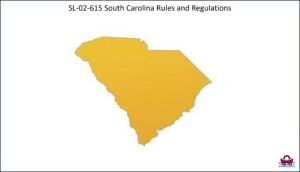Continuing Education Requirements for SC PEs
Table of Contents
The South Carolina State Board of Registration For Professional Engineers and Surveyors regulates the practice of engineering and establishes continuing education standards. Engineers in South Carolina must earn 30 professional development hour credits every two years. Ethics courses are accepted but not required. A maximum of 15 PDH may be carried forward into the next renewal period. South Carolina does not pre-approve course providers or courses. All engineering licenses renew on June 30th of even numbered years. Continuing education is known as Continuing Professional Competency (CPC) in South Carolina.
Listed below are the South Carolina professional engineer (PE) license renewal requirements.
| No of PDH hours required | 30 PDH | |
| Renewal period | Biennially by June 30 of even years. | |
| Provider approval | The Board does not pre-approve course providers | |
| Course content approval | Courses should “enhance and improve a licensee’s professional skills”. | |
| Maximum PDH hours to carry over | 15 PDH | |
| Online courses | No limit on online courses. | |
| State Board Website | https://www.llr.sc.gov/POL/Engineers |
We prepared a detailed summary and review of the South Carolina continuing education requirements (read the article).
Engineering Continuing Education Requirements for South Carolina
As a South Carolina engineer that is getting ready to renew your license, you may be wondering: What are the requirements for continuing education?
In South Carolina, continuing education is also referred to as “Continuing Professional Competency.”
When it comes to the continuing education requirements for South Carolina professional engineers, you must earn 30 professional development hour (PDH) credits every 2 years. It’s possible that up to 15 PDH credits can be carried into the next renewal period. The renewal date for engineering licenses in South Carolina is June 30th of even-numbered years.
PDH Credits in South Carolina
The continuing education requirements for South Carolina professional engineers are established by the Board of Registration for Professional Engineers and Land Surveyors. As a professional engineer, you are required to renew your license every 2 years. It has been decided that June 30th of even-numbered years is the date that all engineering licenses are renewed.
You are expected to complete your 30 PDH credits during each renewal period, with the ability to apply 15 PDH credits toward the next renewal cycle. You are not required by the Board to take ethics or state law courses, but if you do, they will be accepted for continuing education credit.
In South Carolina, it’s possible to renew your license online.
You do not have to provide certificates of completion during the renewal process, but if you are selected for an audit, you have to provide documentation that proves you completed the courses and shows the knowledge you gained during the process. It is recommended that you keep copies of certificates and other course completion documents for at least 3 years.
When it comes to continuing education courses that are accepted by other states, they will be accepted in South Carolina if they meet the criteria set forth by the Board. If any of the course credits you submit are denied, you have up to 12 months to take care of any deficiencies.
SC Engineering License Renewal Dates
All engineering licenses are renewed every 2 years on June 30th of even-numbered years. You have the opportunity to renew your license online, and you are responsible for renewing your license before the deadline. If you don’t renew your license on time, this could result in disciplinary action by the Board.
Some of the disciplinary actions that the Board can take against you include administrative oversight related to your continuing education training and license renewal. If you allow your license to temporarily lapse, the Board considers this to be practicing without a license.
Should you get sanctioned in South Carolina, you are required to report any disciplinary decision to other engineering boards that you hold licenses with. If you don’t notify them in a timely manner, this can result in further disciplinary actions.
South Carolina Requirements for Record Keeping
Statues in South Carolina require you to maintain a record of your PDH units for 3 years. You don’t have to submit these documents during the renewal process, but the Board conducts random audits to ensure all engineers are complying with the rules and regulations for license renewal. If you are chosen for an audit, you must be able to provide the necessary continuing education documentation in a timely manner.
It’s advised that you save all of your certificates of completion and keep them well organized. There are many tools that can help with this endeavor, and you might consider using PDH-Pro. Not only do they keep your certificates organized and easy to access, but they also offer many online courses to help achieve the necessary PDH units to renew your license.
You can either turn in electronic files or paper documentation to the Board to prove you have complied with the continuing education requirements for South Carolina professional engineers. The information that needs to be included on the certificates of completion include the following:
- Name of the sponsoring organization
- Name of the course
- Brief description of course content
- Location
- Date
- Instructor’s name
- Number of PDH units earned
Things the Board will not accept as course completion documentation include payment receipts or agenda listings for seminars.
Continuing Education Activities Accepted by the South Carolina Board
When it comes to satisfying the continuing education requirements for South Carolina professional engineers, you can achieve this goal in a variety of ways. The only requirement is that the continuing education activities enhance your professional attributes and are beneficial to your area of practice, as outlined in Article 6, Chapter 49, Code of Regulations of South Carolina.
You have the opportunity to take courses in risk management, project management, ethics, and state engineering rules. In addition, you have the ability to take courses in many different forms, including those listed below.
Online Courses
The Board does not put a limit on how many online courses you can take, so you have the ability to earn all 30 PDH units in this manner. As long as the activity enhances your competency and skills, you can take as many online courses as you desire.
Live Webinars
When attending live webinars, you must ensure that the course provides value in your area of practice and improves your professional competency. You also need to make sure the webinar is taught by an instructor who is a subject matter expert.
Seminars
As long as the seminar meets the Board’s general requirements, you can use them for continuing education credits. Seminars can include college courses, conference presentations, and on-site seminars.
Pre-Approval of Continuing Education Activities
The Board does not pre-approve continuing education providers or courses. You are responsible for determining if the course meets the continuing education requirements for South Carolina professional engineers. The Board has put together an outline of the rules that you can check to determine if the course meets the requirements.
Free Continuing Education Courses
As a South Carolina engineering professional, you have several options for free continuing education courses. If you are a member of a professional society, such as the ASME or the ASCE, they may offer courses that are included with your membership benefits.
Some of the other options you have for continuing education credits include U.S. patents, any courses you teach, or authoring and publishing a peer-reviewed paper.
Engineering Discipline Restrictions
The Board realizes that engineering requires having an expansive knowledge base. Thus, learning skills outside of your specific practice can be beneficial. You have the option of earning continuing education credits in areas outside of your specific engineering field. However, the course must contribute to your area of practice and enhance your competency.


